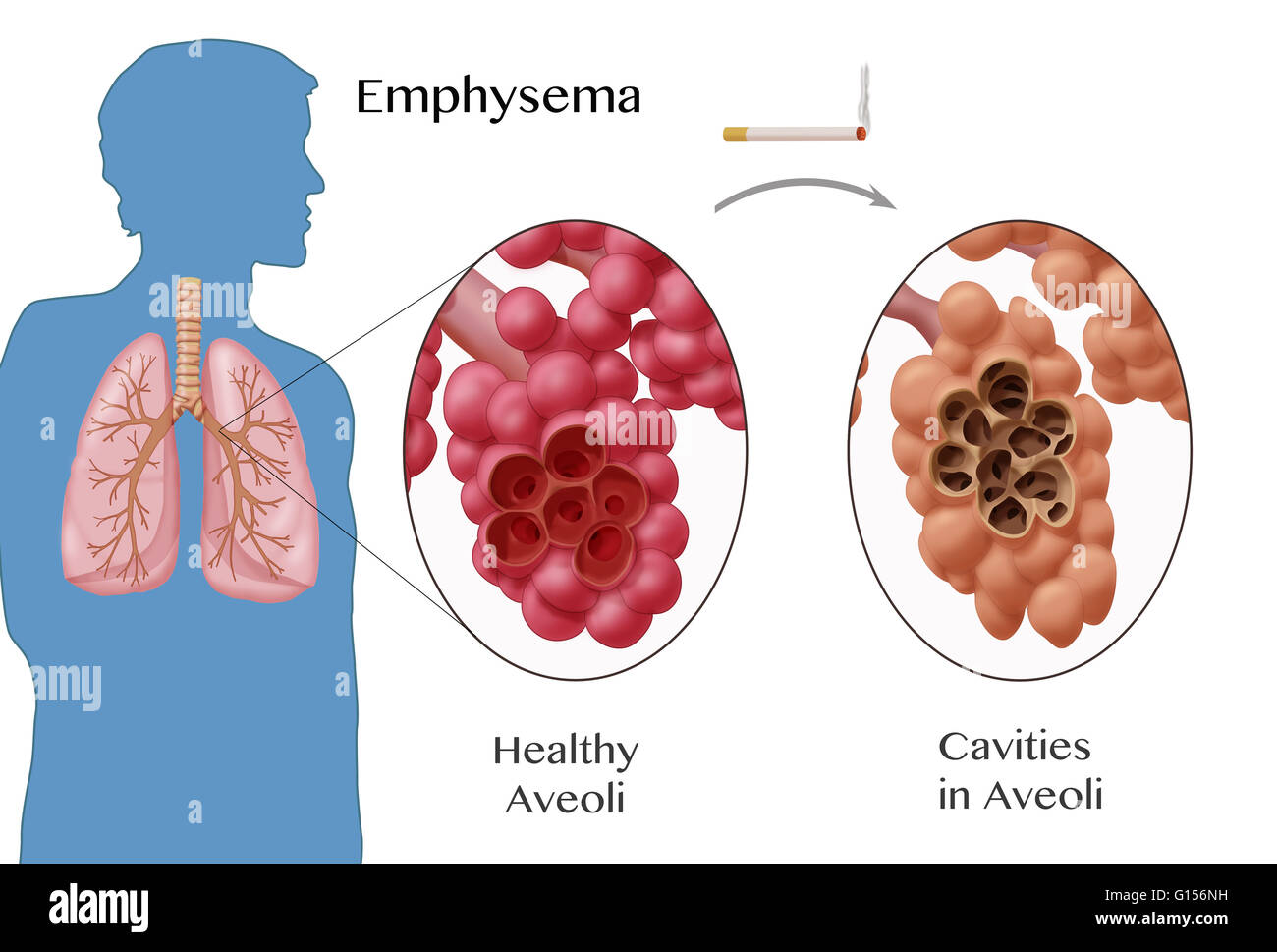The Silent Killer: Emphysema's Shocking Truth and How to Fight Back
Emphysema, a type of chronic obstructive pulmonary disease (COPD), is often referred to as the silent killer. It is a progressive lung disease that can lead to severe shortness of breath, wheezing, and coughing, yet it often remains asymptomatic until the disease is advanced. In this article, we will delve into the shocking truth about emphysema, its causes, symptoms, and treatment options. By the end of this article, readers will have a comprehensive understanding of emphysema and the steps they can take to fight back against this devastating disease.
What is Emphysema?
Emphysema is a type of COPD that is characterized by the destruction of the alveoli, the tiny air sacs in the lungs where oxygen is absorbed into the bloodstream. This destruction leads to a decrease in lung function, making it difficult to breathe. Emphysema is often caused by long-term exposure to irritating gases or particles, such as smoke from cigarettes, air pollution, or chemicals.
- Factors that contribute to emphysema include:
- Smoking and secondhand smoke exposure
- Air pollution and particulate matter
- Occupational exposure to chemicals and dust
- Genetics and family history
- Respiratory infections and chronic bronchitis
Symptoms of Emphysema
The symptoms of emphysema can be subtle at first, but they can worsen over time if left untreated. Common symptoms include:
- Shortness of breath, even when performing everyday activities
- Wheezing and coughing, which may produce yellow or green mucus
- Blue discoloration of the lips and fingers due to lack of oxygen
- Fatigue and weakness
- Chest tightness and pain
- Weight loss and loss of appetite
Stages of Emphysema
Emphysema progresses through several stages, each with distinct symptoms and characteristics. The stages are:
- Mild Emphysema: In this stage, symptoms are minimal, and lung function is still relatively normal.
- Moderate Emphysema: Symptoms become more pronounced, and lung function begins to decline.
- Severe Emphysema: Symptoms are severe, and lung function is significantly impaired.
- Very Severe Emphysema: This is the most advanced stage, where lung function is severely impaired, and breathing becomes extremely difficult.
Diagnosis and Treatment
Diagnosing emphysema involves a combination of physical examination, medical history, and pulmonary function tests. These tests include:
- Spirometry: measures lung function and breathing capacity
- Chest X-ray: examines the lungs for signs of damage
- Blood tests: rule out other conditions that may cause similar symptoms
Treatment for emphysema depends on the severity of the disease and may include:
- Medications: bronchodilators and corticosteroids to improve breathing
- Oxygen therapy: to increase oxygen levels in the blood
- Pulmonary rehabilitation: a comprehensive program to improve lung function and overall health
- Surgery: lung volume reduction surgery (LVRS) to remove damaged lung tissue
Lifestyle Changes
In addition to medical treatment, making lifestyle changes can help slow the progression of emphysema. These changes include:
- Quitting smoking and avoiding secondhand smoke
- Avoiding air pollution and particulate matter
- Exercising regularly, such as walking or swimming
- Eating a balanced diet rich in fruits, vegetables, and whole grains
- Getting enough rest and avoiding stress
Managing Symptoms
Managing symptoms of emphysema requires a combination of self-care techniques and medical treatment. These techniques include:
- Breathing exercises, such as diaphragmatic breathing and pursed-lip breathing
- Using a humidifier to add moisture to the air
- Taking regular breaks to rest and avoid overexertion
- Managing stress through relaxation techniques, such as meditation or yoga
Research and Prevention
While emphysema is a common and debilitating disease, research is ongoing to develop new treatments and prevention strategies. Some promising areas of research include:
- Gene therapy to repair damaged lung tissue
- Stem cell therapy to regenerate lung cells
- Environmental monitoring to reduce air pollution
Conclusion
Emphysema is a devastating disease that affects millions of people worldwide. By understanding its causes, symptoms, and treatment options, individuals can take the first steps towards fighting back against this silent killer. While there is no cure for emphysema, with proper treatment and lifestyle changes, individuals can improve their quality of life and slow the progression of the disease.
Kaitlyn Krems Fans
Nsfw Twitter
Metro Boomin Height
Article Recommendations
- Loving Auntic Free
- Kate Winsletrome
- Talia Ryder
- Imoo Jung Relationships
- Is Jennifer Lopez Pregnant
- Charlotte Parkes
- Aliyah Marie
- Malcolm Gladwell Wife
- Karen Velez
- Jyoti Amge

:max_bytes(150000):strip_icc()/what-is-emphysema-2249091_final-f0dbd0a9fd6746119069485a18026332.png)

